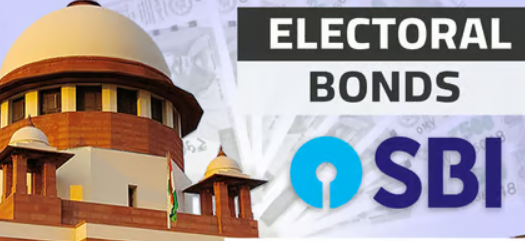Amit Pandey

The recent developments involving the State Bank of India (SBI) and the Supreme Court of India have brought to light a significant issue concerning the adherence to judicial orders by government institutions. The Supreme Court, in its capacity as the highest judicial authority in India, issued a directive to the SBI to disclose the unique identification numbers of donors who have purchased electoral bonds. This order was aimed at ensuring transparency in the electoral process, a fundamental aspect of democratic governance.
The SBI’s reluctance to comply with the Supreme Court’s verdict has raised several questions about the bank’s interests in withholding such information. The Supreme Court’s order is not merely a suggestion but a binding decision that must be followed. The failure to do so not only undermines the court’s authority but also jeopardizes the principles of transparency and accountability that are essential to the public interest.
The SBI, as a government-owned entity, operates under the guidelines of the central government and is regulated by the Reserve Bank of India (RBI). It does not possess autonomous power, and its actions are subject to the scrutiny of the law. The chairman’s apparent disregard for the Supreme Court’s judgment has led to calls for his arrest, highlighting the gravity of the situation.
In India, the licensing of banks is governed by the Banking Regulation Act, of 1949. Specifically, Sections 5(b) and 6(1)(a) to (o) of the Act outline the business that a banking company may undertake and the requirements for obtaining a license from the Reserve Bank of India (RBI). The RBI Act, of 1934, and the Banking Regulation Act, of 1949, regulate all banks in India, including foreign banks operating through branches licensed by the RBI.
The conditional powers of banks, including the State Bank of India (SBI), are also defined under these acts. The SBI, like any other bank, operates under the guidelines and regulations set forth by the RBI and the central government. It does not have autonomous power and must adhere to the laws of the land.
If a bank or its officials violate a verdict of the Supreme Court, they could be subject to contempt of court proceedings. The punishment for contempt of court in India can include simple imprisonment for up to six months, a fine, or both. The exact punishment would depend on the severity of the contempt and the discretion of the court. It’s important to note that no entity, including banks, has the power to violate the verdict of the Supreme Court without facing legal consequences. The rule of law ensures that all entities, regardless of their nature, are subject to the jurisdiction and orders of the judiciary.
Political parties and leaders have often been criticized for their reluctance to obey rules and regulations, especially when it comes to matters of transparency in funding. The appointment of the Election Commission is one such area where the legislative body has enacted laws that seemingly diminish the court’s role. However, when a bank like the SBI, which is neither a constitutional agency nor autonomous, fails to obey a direct order from the Supreme Court, it sets a dangerous precedent.
If such defiance continues unchecked, it could lead to a diminishing of the Supreme Court’s dignity and authority. The rule of law is a cornerstone of the Indian Constitution, and compliance with court orders is not optional but mandatory. The SBI’s non-compliance could potentially lead to contempt proceedings, which may result in civil or criminal penalties.
The Supreme Court’s verdict on the electoral bonds case, dated February 15, 2024, declared the Centre’s electoral bonds scheme unconstitutional and ordered the disclosure of donor details. The SBI was directed to submit these details by March 21, 2024. The bank’s failure to do so has not only attracted the ire of the Supreme Court but also raised concerns about the effectiveness of the judiciary in enforcing its orders.
The implications of the SBI’s actions are far-reaching. If government undertakings can flout Supreme Court orders without consequence, it undermines the very fabric of the judicial system. The enforcement of court orders is crucial for maintaining the balance of power between different branches of the government and for upholding the rights and freedoms of citizens.
The Supreme Court’s directive was not just a procedural formality; it was a step towards reinforcing the principles of accountability and transparency in political financing. The electoral bonds scheme, which allows anonymous donations to political parties, has been criticized for its potential to mask the influence of wealthy donors on the political process. By ordering the disclosure of donor identities, the court sought to peel back the layers of secrecy and provide the electorate with information that is crucial for making informed decisions.
The SBI’s reluctance to comply with the Supreme Court’s order on electoral bonds is a matter of serious concern. It challenges the authority of the judiciary and threatens the principle of transparency in political funding. The resolution of this issue will not only affect the credibility of the SBI but also the integrity of the electoral process and the rule of law in India. The Supreme Court’s stance on this matter will be a testament to the strength of the judicial system and its ability to uphold constitutional values in the face of resistance from powerful entities.
The State Bank of India’s refusal to disclose electoral bond donor details led to a standoff with the Supreme Court. It investigates the factors driving the SBI’s non-compliance, and the potential repercussions of this defiance, and underscores the significance of preserving the rule of law and judicial sovereignty in a democratic nation. The case serves as a crucial examination of the judiciary’s ability to enforce its decisions and the government’s commitment to adhering to them.


